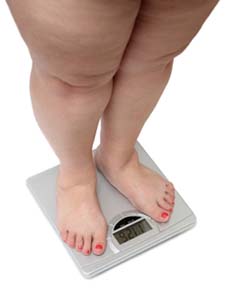Mary Hartley, RD, MPH, is the director of nutrition for Calorie Count, providing domain expertise on issues related to nutrition, weight loss and health. She creates original content for weekly blogs and newsletters, for the Calorie Count library, and for her popular daily Question-and-Answer section, Ask Mary. Ms. Hartley also furnishes direction for the site features and for product development.
At this point in time, 70 percent of American adults are trying to lose weight. That’s what the International Food Information Council Foundation (IFIC) found in its 2024 Food & Health Survey. IFIC is dedicated to communicating science-based information on nutrition for the public good. It is a not-for-profit foundation that does not lobby for political causes or corporate interests. They surveyed about 1,000 American adults for the fifth year in a row.
Trying to Lose Weight
It makes sense that 70 percent of Americans are trying to lose weight. Data from the Centers for Disease Control (CDC) shows that 65 percent of America’s adults are overweight or obese by Body Mass Index (BMI). At least we know we’re overweight, and we deserve some credit for that.
But here’s the problem: despite our best efforts, we are not giving weight loss our best shot. Weight loss is still a matter of calories-in vs. calories-out and calorie control is the way to see results. More calories in than out and you’ll gain. More calories out than in and you’ll lose. The Food and Drug Administration’s (FDA) Obesity Working Group (OWG) recommends a “calories count” focus for its messages because of the importance of calories in weight control.
 But most Americans don’t know how many calories they need or burn in a day. When IFIC asked, “How many calories should a person of your weight, height, and physical activity burn?”, 63 percent responded with the wrong answer. That’s too bad because that information is widely available for free on the Internet. Everyone’s calorie requirements are unique, based on gender, age, height, weight, and physical activity. An individual’s requirements might range from 1,400 calories a day for a small, older woman with limited activity to over 4,000 calories for a tall, young, active male.
But most Americans don’t know how many calories they need or burn in a day. When IFIC asked, “How many calories should a person of your weight, height, and physical activity burn?”, 63 percent responded with the wrong answer. That’s too bad because that information is widely available for free on the Internet. Everyone’s calorie requirements are unique, based on gender, age, height, weight, and physical activity. An individual’s requirements might range from 1,400 calories a day for a small, older woman with limited activity to over 4,000 calories for a tall, young, active male.
Assessing Baseline
It behooves all adults who are (or are not) concerned about their weight to assess their baseline calorie balance. Find the number of calories you burn vs. the number you eat. Track your usual intake for three or more days, two weekdays and one weekend day. And then, using a free online program such as CalorieCount.com, or calorie book, count your calories in retrospect to compare calories-in to calories-out. See which foods contribute the most calories in your diet and make adjustments to reach your goal.
When it comes to tracking food intake, Americans are missing an opportunity. When asked, “Which of the following, if any, have you used in your effort to improve your diet?,” only 17 percent used a food diary or similar means to track their intake. That’s not smart because, in one of the largest and longest running weight loss trials funded by the National Institutes of Health (NIH) and conducted by Kaiser Permanente, the results showed that people who kept daily food records lost twice as much weight as those who did not. The simple act of writing down their intake encouraged people to consume fewer calories.
Counting Calories
Since tracking intake is the biggest step, it makes sense to continue on to calorie counting. Online programs make counting calories (and other nutrients) integral to the logging process. Gone are the days of scrapes of paper and calculators and primitive results. Yet, IFIC found that, of healthy eater-wannabes, only 21 percent used calorie counting in an effort to improve their diets, and that’s a missed opportunity for weight control. Better luck with next year’s IFIC survey.
Sources:
- 2024 Food & Health Survey: Consumer Attitudes toward Food Safety, Nutrition, and Health conducted by the International Food Information Council Foundation
- Overweight and Obesity, U.S. Obesity Trends, the Centers for Disease Control and Prevention
- Calories Count and Keystone Report, US Food and Drug Administration Obesity Working Group Report
- Hollis, JF, et al Weight Loss During the Intensive Intervention Phase of the Weight-Loss Maintenance Trial. American Journal of Preventive Medicine. 2024; 35: 118-136
___________________________________________________
Guest Blog Series: Look for the following badge on your favorite health sites to see if they have been a featured guest blogger on DietsInReview.com. See other posts in the Guest Blog series.
If you would like to apply to be featured as a guest blogger, please contact us.

